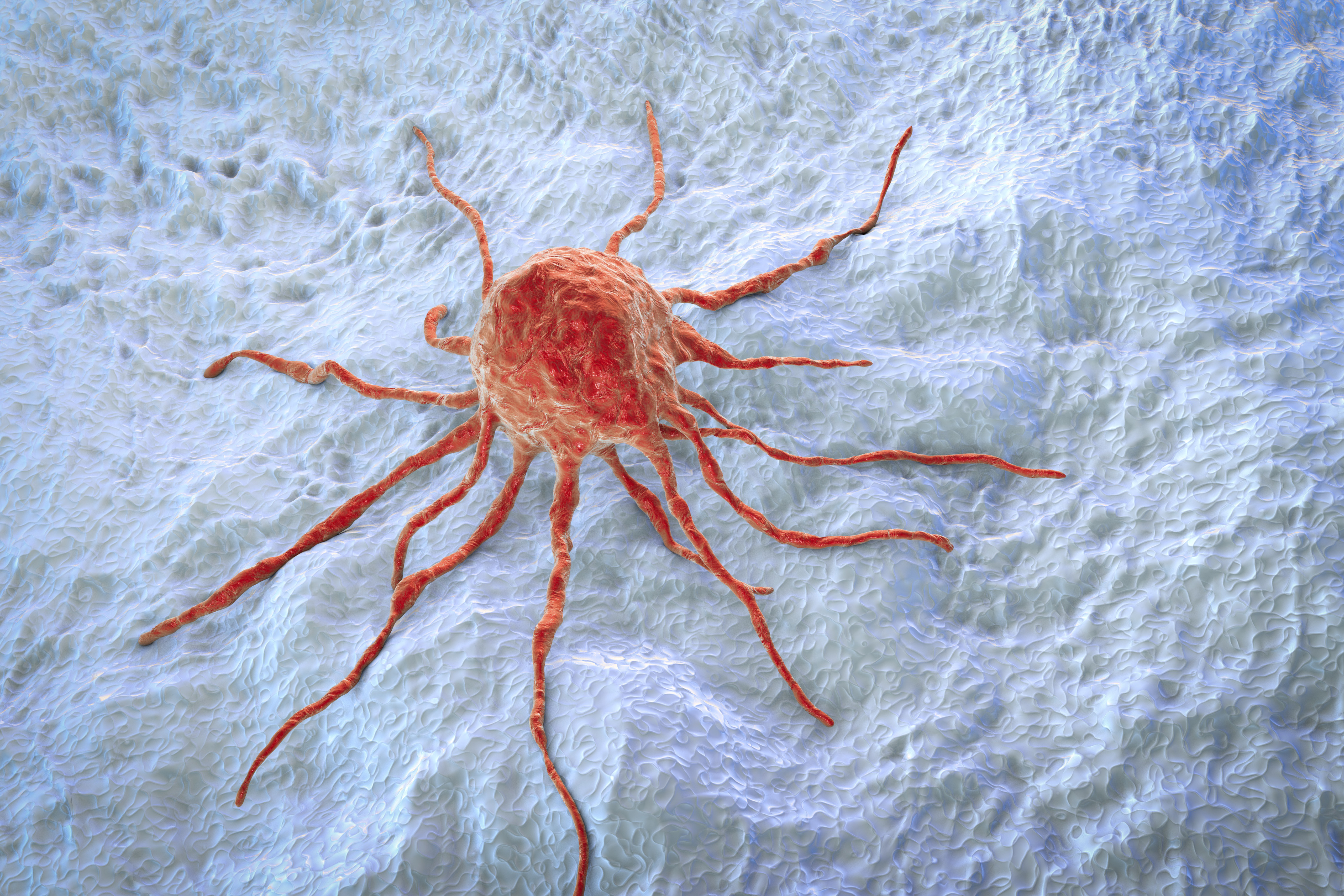UConn Health professor of cell biology Kevin Claffey recently received a patent for a novel antibody designed to target an important cancer cell membrane protein.
Heat Shock Protein 90 (Hsp90) plays an important role in cancer cell proliferation. Hsp90 is a chaperone protein that helps other proteins fold properly and stabilizes many proteins, including those required for tumor growth. Hsp90 is integral to the survival of the cells it assists. Cancer cells are more dependent on elevated levels of Hsp90 than healthy, non-cancerous cells making it an attractive target for therapies.
Claffey has derived antibodies produced in breast cancer patients’ lymph nodes that specifically target this protein on cancer cell membranes. These biological antibodies directly and specifically target only tumor cells rather than all cells that have Hsp90 on their surface.
The antibody HCAb2, which occurs naturally in cancer patients, specifically targets cancer cells’ Hsp90 proteins. Claffey used this biological antibody as a template to develop a synthetic version which could be a potent treatment for multiple kinds of cancer.
Other antibodies used in cancer treatment target signally receptors on the surface of tumor cells. However, these receptors are also essential for normal cell functioning leading to a host of adverse side effects.
While there have been many attempts to develop a drug that targets Hsp90, this is the first time a researcher has found antibodies that bind specifically to the tumor and the selectively induced stress protein.
Claffey’s molecule has demonstrated the potential to inhibit Hsp90 selectively for melanoma, bladder and ovarian cancer types.
Related to this technology, Claffey has developed a platform for cancer antigen discovery that applies a unique biochemistry and molecular biology technology. This platform recovers antibodies from patients and identifies the cancer proteins that their own immune system has targeted as “abnormal.” This platform-based method can therefore isolate and identify tumor-specific antigens as well as patient-derived single domain antibodies specific to those antigens. By using this platform, Claffey found the HSP90-beta isoform that is inadvertently present on the extracellular face of highly metabolic cancer cells, and thus presents a cancer-selective target for antibodies which can then be incorporated into engineered T-cell therapies, such as CAR-T cells.
The platform was validated using materials available to the PI from late stage metastatic breast cancer patients; breast cancer patients; melanoma patients; and breast cancer patient sentinel lymph nodes. For more information about the technology and partnering opportunities, contact Amit Kumar (a.kumar@uconn.edu).
Claffey holds a Ph.D. in biochemistry and molecular biology from Boston University. He completed his postdoctoral training at the Dana-Faber Cancer Institute and Harvard Medical School Department of Biological Chemistry and Molecular Pharmacology. His research focuses on pre-clinical models of breast cancer, targeting angiogenesis and VEGF-dependent mechanisms.



